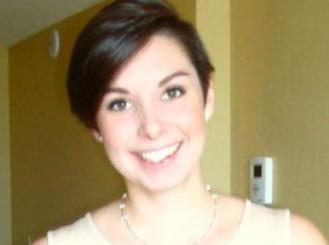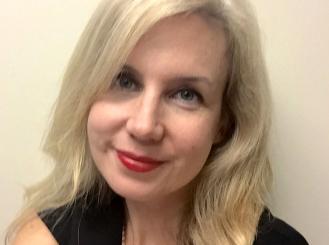Oct 25, 2015
By Shira Klapper, Senior Writer/Editor
A new study in the Journal of Oncology Practice (JOP), explores how oncologists use social media, shedding light on the kind of professional knowledge clinicians seek when visiting sites such as Twitter and Facebook and identifying barriers to using social media. The resulting study, “Social Media Use Among Physicians and Trainees: Results of a National Medical Oncology Physician Survey,” was published online, ahead of print, October 6.
The study, carried out by a team of researchers from cancer centers across Canada, was designed to address a gap in the research: nearly all previous studies on the nexus of social media and medicine focus on the challenges social media presents in terms of privacy and maintaining professionalism.
”The existing literature on social media was really just cautioning doctors, and wasn’t focusing on the opportunities social media was presenting,” said Rachel Adilman, BSc, first author of the study. “We wanted to highlight the fact that social media actually has opportunities for us. We can share knowledge, we can collaborate, and we can harness these opportunities to further our knowledge and cooperation.”
According to senior study author Christine Simmons, MD, MSc, a medical oncologist at the British Columbia Cancer Agency, it is important to understand how oncologists in particular use social media because of the fast-moving nature of oncology research; doctors, and their patients, can benefit from staying up to date with the latest studies.
“From a scientific standpoint, modern oncology changes so quickly, is so complex, and is increasingly dependent upon the collaboration and connectedness amongst different areas of expertise,” said Dr. Simmons.
How are oncologists using social media?
The researchers sent surveys to 680 medical, radiation, and surgical oncologists; hematologists; and oncology trainees, asking about different aspects of social media use; Trainees weredefined as pre-medical students, medical students, and residents. Two hundred and seven study participants sent back the surveys (a response rate of 30%). Analysis of the responses revealed these findings:
- Frequency of social media use: 72% of respondents use social media
- Differences in use of social media by age of oncologist: The study used age as an indicator of respondent’s career phase, whether trainees, fellows, or early-, mid-, or late-career oncologists. Among those age 18-24 (trainees) and 25-34 (fellows), 89% and 93%, respectively, use social media. However, among those age 35-44 (early-career), the percentage goes down to 72%. And among those age 45-54 (mid-career), the percentage of oncologists who use social media dips down to 39%, a rate that is significantly lower than the 89% and 93% seen among trainees and fellows. Interestingly, late-career oncologists (age 55 and over) have a higher rate of social media use (59%) compared to mid-career oncologists.
- What are oncologists’ goals in visiting social media sites for professional development?
Fifty five percent of respondents said their goal in visiting social media sites was to network with colleagues or professionals, 17% said their goal was to share research, and 13% said their goal was leadership development.
When separated by age group, differences emerged between users’ goals. Among the trainees and early-career cohorts, more than 53% of respondents reported a desire for professional networking, whereas among mid-career oncologists, the rate was 36%.
- What kind of professional information are oncologists seeking on social media sites?
Fifty three percent of respondents said they are seeking journal articles, 52% said they are seeking information about upcoming conferences and courses, and 51% are looking for updates on current oncology research.
- Barriers to using social media
The majority of respondents, 59%, said they do not have enough time to access social media, 22% eschewed social media for more traditional ways of accessing news, and 20% cited hesitation due to privacy or security concerns.
Age gap: are young trainees missing an opportunity to connect with older mentees through social media?
According to Dr. Simmons, the difference in social media use by age might indicate a lost opportunity for younger doctors to communicate with more experienced ones.
“In oncology today, there is an increase in pressure, workload, and the complexity of care that we’re providing patients,” said Dr. Simmons. “And you have this disconnect between mentees, who are just starting their careers, and those who have been in the field for more than 10 years and have the experience and the knowledge to impart, which is unfortunate. It’s important for us to be aware of this and to ask whether mentors might need to connect in different ways, and if older digital ‘immigrants’ can learn from younger digital ‘natives.’”
Rachel Adilman, BSc, is a pre-med medical oncology research student at the British Columbia Cancer Agency in Vancouver.
Christine Simmons, MD, MSc, is a medical oncologist at the British Columbia Cancer Agency, in Vancouver. She has been an ASCO member since 2005.
Abstract of the original JOP article.
PDF of the original JOP article.
Adilman R, Rajmohan Y, Brooks E. Social media use among physicians and trainees: results of a national medical oncology physician survey. J Oncol Pract. Epub 2015 Oct 6.
The Exclusive Coverage series on ASCO.org highlights selected research from JCO and JOP with additional perspective provided by the lead or corresponding author.
@ 2015 American Society of Clinical Oncology


